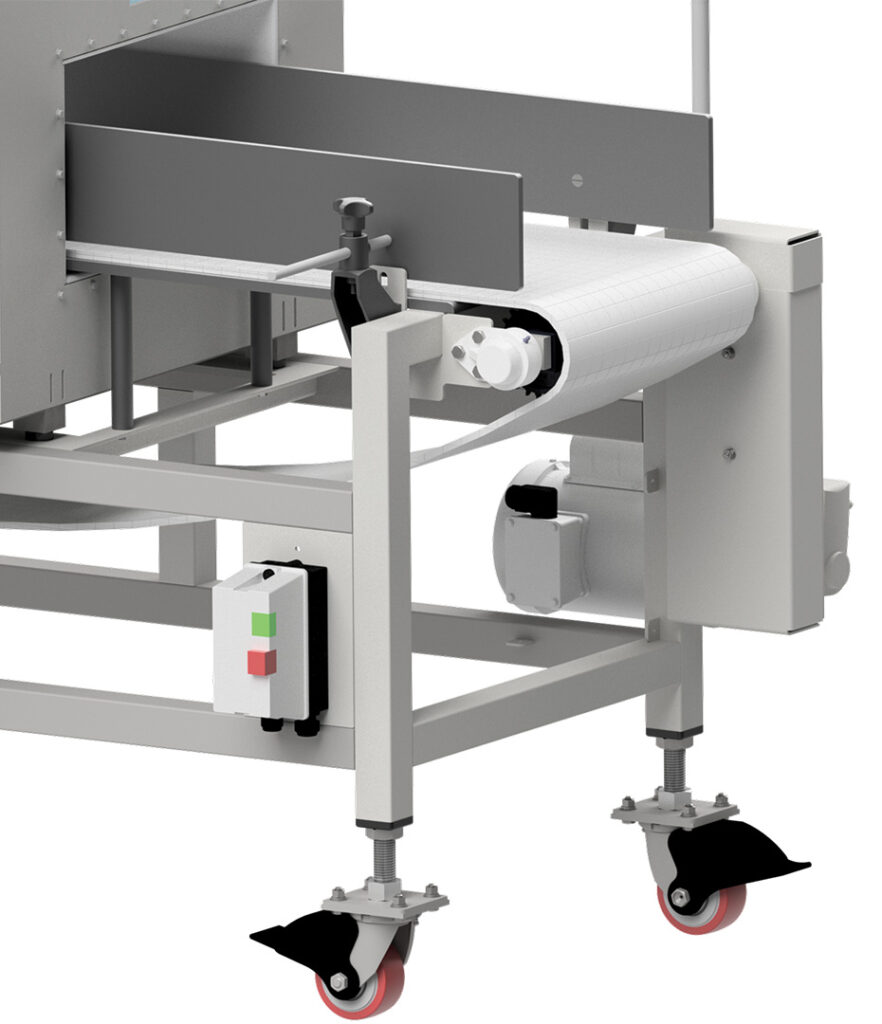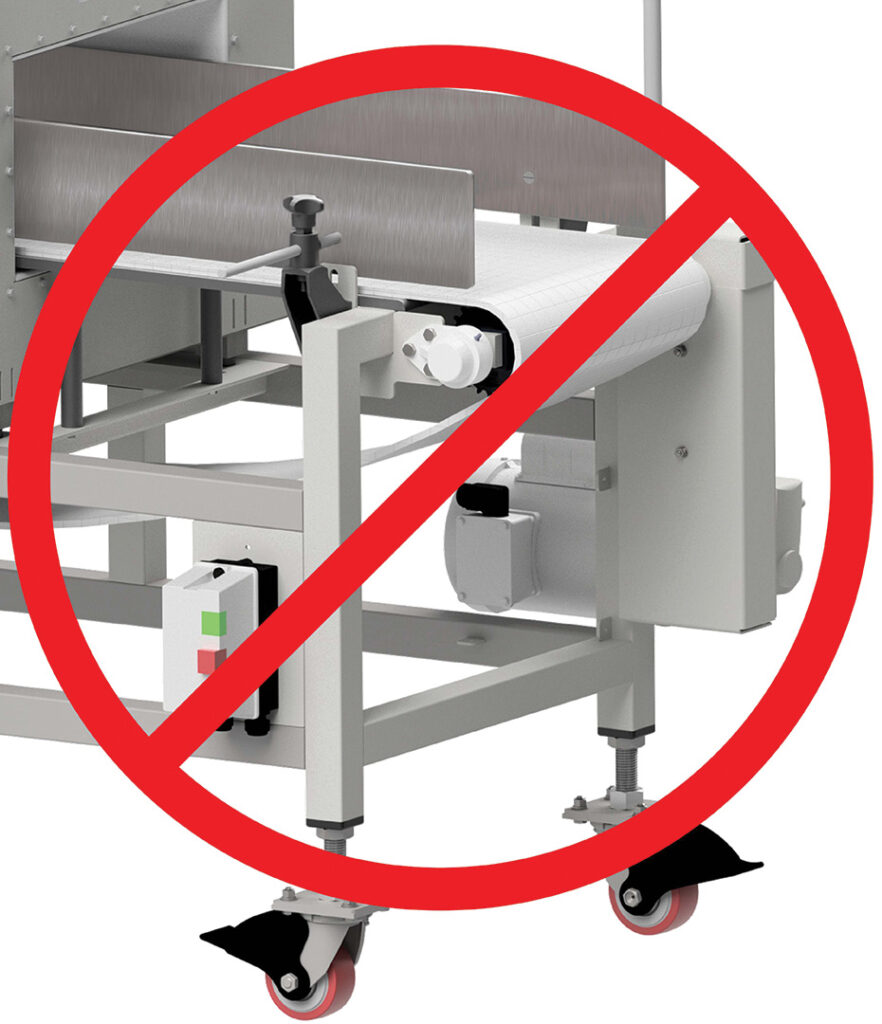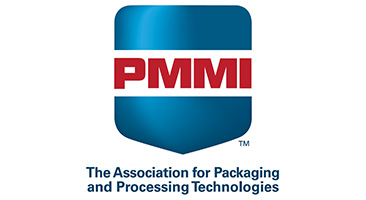Metal detection is crucial to operation for a number of industries. Our metal detectors are used to ensure product purity, protect consumers and protect expensive equipment; making accurate, consistent and reliable detection extremely important. However, when your industrial metal detector has a false trip, production can come to a standstill, product can be unnecessarily wasted, and your profit margin may begin to narrow. Read on to learn what metal detector false trips are, their possible causes and how to prevent them to ensure you are getting the best possible metal detection for your application.

What is a metal detector trip?
Industrial metal detector heads are built around a balanced coil. When metal moves through the metal detector aperture it disturbs the coil balance causing what is commonly referred to as a trip.
What is a metal detector false trip?
If a trip occurs when no metal is present in the metal detector aperture this trip is referred to as a “false trip”.
What causes metal detector false trips?
False trips create unnecessary product waste, downtime, and lost profits. If your industrial metal detector is giving you false signals, check for these common issues.
An unbalanced coil
Even though today’s metal detectors are equipped with technology that maintains coil balance it is possible the coil can become unbalanced if the metal detector is physically damaged. False trips can be caused by a damaged, unbalanced coil.
Moving metal within the metal free zone of the metal detector head

An electro-magnetic field is created inside the detector’s enclosure; however, some field emanates out of the aperture on both sides and forms the metal free zone (“MFZ”). Generally, the practical size of the MFZ is 1½ times the (smaller) aperture dimension, and no metal should be allowed in this area. Large moving metal should be kept 2 times away. Special metal detection systems are available for applications which demand a substantially reduced MFZ.


Conveyor with proper non-metallic side rails
Conveyor with conductive metal side rails
Ground Loops
Two pieces of metal making intermittent contact in the vicinity of the metal detector will cause false trips. Loose conveyor components touching each other, and loose nuts and bolts are common causes of ground loops.
Static electricity
Static electricity is caused by friction between two dissimilar materials. A plastic conveyor belttraveling over a plastic slider bed or dry bulk product falling through a plastic tube in a gravity fed metal detection system can cause static electricity. The discharge of static electricity near the metal detector will cause false trips. The use of an anti-static slider bed and gravity feed tube is recommended especially in dry environments. Grounding all material handling equipment, at multiple points, prior to the metal detector will dissipate the static by giving it a path to ground.
Increased product effect caused by additional conductive product
Some products are conductive. Warm, salty, and wet product like pickles are quite conductive and will cause a balanced coil to trip. Metal detectors are equipped with Auto-learn features that assist the operator with automatically adjusting the metal detector’s sensitivity to ignore the conductivity of the pickles while still detecting metal particles. This approach requires the conductivity of the pickles passed through the detector be consistent. If, for instance, two jars of pickles are presented to a metal detector set up to inspect one jar at a time, the conductivity of the additional jar of pickles will trip the metal detector. This is considered a false trip.
Increased product effect caused by a change in the orientation of conductive product
Conductive product will present less product effect to the metal detector with the narrowest dimension leading through the metal detector aperture instead of the long dimension due to the reduced cross section of the product in the detector aperture at a given moment.


Optimal length leading orientation
Width leading orientation
Best possible detection levels can often be achieved if the orientation of conductive product is controlled. But if the detector sensitivity settings have been established based on the narrow dimension of conductive product leading and the product being inspected is presented with width leading, the additional conductivity of the product may cause a false trip.
Radiated noise
Transmitters of radio frequencies and motors with variable frequency drives operating near the metal detector radiate noise that can cause false trips. Anything that creates a frequency equal to the frequency at which the metal detector operates will interfere with the operation of the detection system.
Electrical line spikes and dips
Most of today’s industrial metal detectors are equipped with power supply hardware and electronics that effectively condition incoming power to avoid false trips caused by spikes and dips in plant electrical power service. But significant power fluctuations of 10% or more may disturb the metal detector coil balance enough to cause false trips.

Metal contaminant imbedded in the conveyor belt
If a metal contaminant becomes imbedded in the conveyor belt it will be carried by the belt through the metal detector and cause a false trip. The belts used in conveyor mounted metal detection systems are designed to be easily removed from the conveyor frame facilitating thorough cleaning of the top and bottom of the belt.
False Trip Support for Metal Detection Systems
For over 30 years, Advanced Detection Systems has developed a reputation as a quality metal detection equipment manufacturer for many industries with diverse metal detection needs. With experienced engineering, manufacturing and sales people working together in our Milwaukee, WI facility, we can provide expert advice and aftermarket metal detector support to customers needing assistance with their industrial metal detection system. If you are experiencing an issue with false trips and need assistance, don’t hesitate to reach out. Give us a call at call at 414-672-0553 or email us at sales@adsdetection.com and we’ll see what we can do to get you metal detection system that provides the best sensitivities possible, eliminates downtime and ensures product purity.






